4 Fears of Social Media Posting
“Social Media and the Creative Mind”
Happy New Year! After a year of consistently posting to Instagram, I wanted to share my experience in hopes that my transparency can help break the illusion that it’s easy to share creative projects (because sharing publicly is not always easy). In Dec. 2020, I started with 400 followers and have ended up with over 1,500 followers a year later. Along the way, I’ve made many lifelong friendships by being more available and present in the art community, and have even found an online community that inspires and drives me to keep sharing.
The mental challenge of being consistently public with my work is STILL a process and after living most of my life being too afraid to share, it’s still not an easy process. Honestly, I don’t think the fear will ever go away, but after a year of practice, I have found it is easier to manage.
If you’re a creative person who feels like you have something preventing you from sharing more publicly, I truly hope this blog post helps you feel less alone in what you’re feeling. I’ve always appreciated when creative people share their challenges with their creative endeavors, so if you find this helpful, please don’t hesitate to let me know through IG or by commenting on this website page below.
In the grand scheme of things, a year of posting publicly is not very long. But writing about it now might lead me to share a particular perspective I wouldn’t have in another year!
So the main fears I’ll be addressing is:
- the fear of judgment
- the fear of losing creativity
- the fear of success.
- the fear of taking a break.
The Fear of Judgment
After a year of posting on Instagram more frequently than ever before, I have found many positives and negatives that have left me to realize a few things. For most of my life, I lived on the outside of social media, acting mostly as an observer of content posted by friends and peers. But in Dec. 2020, I promised myself that I’d post at least 5+ times a week on IG (Instagram) and this lifestyle has taught me (and continues to teach me) that just like performance, it takes practice.
As performers, we’re taught to relax into the idea that the audience doesn’t want you to fail, they want you to succeed. An audience is a mirror and reacts to what they’re observing – they usually end up feeling whatever the performer is feeling. If on stage I feel worried I will fail, more than likely, the audience will worry about me failing. But if I enjoy myself in the moment of the music, the audience is more likely to absorb the atmosphere and enjoy it themselves.
Post like you’re sharing with friends.
Honesty goes a long way and if you enjoy the post’s content and believe it to be sincere, so might your audience.
In my experience, being a perfectionist is like having a superpower that when left unchecked, can function as our ultimate weakness. My perfectionism has brought me to heights I would have never imagined, but it has also led me to stop from really being more public with my work and… well, has often persuaded me not to put myself out there.
The fear of judgment leads me to worry about how much attention something will receive or how people might view me if something isn’t “good enough.” And if I think too hard on these thoughts, the imposter syndrome begins to take over and self-judgment starts to persuade me of false truths. In other words, public validation used to be the deciding factor in whether I’m meant to pursue art and music. But confidence in oneself is not based on outside judgements, it’s the letting go of inner judgements and putting less weight (or less meaning) on the outcomes.
Posting a piece of work used to leave me wondering if it was good or not, if it proved myself as an artist or musician, or if I should even have posted it, to begin with! But with practice, I’ve gotten better at beginning the process with a more solid foundation of self-validation that isn’t dependent on the outcome of public reactions. “To me, this post is meaningful. I trust myself in the value I’ve placed in it.”
Here are a few approaches that have helped me be more public with my work over the last year:
- Writing/preparing a post the day before and reviewing it in the morning (possibly even automating a batch of posts)
- Asking myself if the meaning I’ve placed in this post is subjective or objective. Will others agree with the meaning? Or is the value I’ve placed in it too personal for others to relate to?
- Posting and stepping away from social media for a few hours, reminding myself I do not NEED to see how it’s received right now. And when I do, it shouldn’t change how I feel about it, regardless of whether it’s positive or negative feedback.
- After reviewing how people might like, comment, or share, I then observe my response, reminding myself that whatever positive or negative feelings that come of it are fleeting and may not need to alter my initial feelings toward my content’s value.
- Constructive criticism and/or feedback from credible sources, friends, or mentors should be taken into consideration when I have enough headspace to approach them objectively.
The Fear of Losing Creativity
One of the assumptions I had about posting more regularly was that constant posting would diminish the amount of creativity I had to give toward my projects. With as much content as IG requires to stay “active,” how is one supposed to keep up? (“Active” in this situation means posting a few times a week, if not every day!).
What I have found is that it actually exercises and strengthens my creativity! It’s quite an environment to put your mind to the test. There’s less time to overthink, less time to ponder over decisions in the creative process, and less time to care about the outcome! Previously, posting would mean success or failure as a creative person. Now, posting means less for my character or ego, and more an exercise for the sake of exercise.
My creative muscles have nearly tripled in their efficiency. This is not to say I don’t create low-quality posts here and there (I think those are inescapable as a one-person team and human being), but my self-judgment and indecisiveness during the creative process have simplified. There’s less time to think about what could be best because the main goal is creating something in time to post!
Here are a few things I’ve noticed in the process of content creation:
- If I intend to impress others, I often create low quality or disingenuous material.
- If my intent is based on exploration or experimentation, I often create more interesting and organic projects.
- If my intent is based on an emotional need to express myself, I often create the best, most memorable works.
I have adopted a new process of evaluating my intent after so much practice this year. Each decision I make during the creative process can stem from an honest place without ego, but it takes self-awareness and humility in the highest order. Something of which I fail at as much as I succeed, which to be honest is impossible to measure accurately (because measuring success is kind of a silly idea – what even is success?). But we can, however, practice tuning our sensitivity to personal intent and exercise our “ego” filter. Though I think it’s important to remember, it’s human nature to never escape failure (or our sense of ego).

The Fear of Success
Time to dive into the deep end here. How does one have a fear of success when success is what we’re after?
First off, I am not a trained psychologist nor should you take my words without some personal research or inquisition of your own. But I hope that I might steer you in a productive direction of self-questioning and reevaluation of your approach toward success.
For me, any proof of success is often written off. This is unintentional and led by a force of habit that’s hard to catch without personal reflection. Rather than it being a conscious choice to diminish evidence of success, it’s actually unconscious filtering that shifts my observations to align more with my negative self-image. If you view yourself in a particular place in life, it’s sometimes difficult to change perspectives. Viewing myself as someone who will never “make it” has often been the reason I never tried.
If the glass is half empty, and I believe it to be half empty, why bother looking when whatever I see won’t change my inner belief. “The glass is half empty” is a negative perspective that encourages my familiar negative viewpoint on my art and music, making the more positive outlook (the glass is half full) more unfamiliar and much more difficult to accept. It feels “wrong.”
Seeing a post reach over 200 likes was something I only dreamed of a year ago. Now, without reminding myself of the irrelevant negativity of my initial reaction, I can sometimes look past the 200 likes and find another reason to be disappointed in myself. Finding a reason to be disappointed aligns with my self-image of someone who “will never make it” and therefore, the familiarity seems more “correct” and whatever feels right tends to be overlooked.
Why question yourself if your perspective seems true? Might even seem to be a fact on some level?
Posting to social media more regularly has given me more proof that I may actually have a reason to post – after a year of positive comments, feedback, and encouragement, it turns out that I actually might have things to share that others find interesting. This very thought didn’t exist within my world in 2020 (and for the majority of my life) and it still takes practice not to forget or ignore the positive perspective.
So in a way, posting more regularly has given me practice in facing my fear of success. Fear that I might disagree with my comfortable, yet negative self-image. Fear that I’m not in control of everything and that my negative definitions of myself might be wrong. Because a big thing I’ve come to learn from mentors and peers is that “comfortable” is not always healthy. And not always best.
A few things to ask yourself when reviewing how a post is received (apply to both popular & unpopular content):
- What was my expectation? And what did I expect this post to do? Did I need the expectation or was it even a fair expectation?
- Was this post led by ego? Or was it egoless? Was my intent to share a work for the work’s sake? Or was it meant to prove something?
- Did the feedback or lack of feedback feel indicative of how I initially felt about the content?
- How do I feel about the post subjectivity? How do I feel about the post objectively?
Being public and sharing on social media does not have to be about gloating, showing off, pretending to be someone you’re not, or proving something of yourself. It can serve as an opportunity to practice balancing self-judgment and letting go of control (in this case, control of how others might perceive or react to your work).

The Fear of Taking a Break
Many of my peers will agree with me on this one. As composers, artists, and creators in general, sometimes following through with everything our business might need (whether that be promotion, email correspondence, scheduling, content creation, etc.) can be overwhelming and mentally exhausting. And from what I can tell, Instagram punishes those who take breaks! In my opinion, I find this to be one of the most concerning aspects of getting more involved online – the tendency to allow social media to heavily influence our definition of a healthy lifestyle and the feeling that being public with our lives is inescapable due to the acceptance of modern-day smartphone use.
Let me just begin by saying, it is okay to take breaks.
Everyone needs breaks because we are NOT robots and it’s an unfair expectation that we must uphold a standard of productivity comparable to that of bigger, multiple-member teams that dominate the social media scene. It’s hard to tell sometimes, too, what “success” actually is on Instagram, because while it might seem like one person is behind a single profile, there’s no telling how many people are working or helping behind the scenes! There could be many people crafting material, proofreading content, and scheduling out automated posts for a single profile or website. How is one person to keep this expectation and balance the rest of their lives?!
In my experience, an imbalanced lifestyle is encouraged and often expected. An addiction to social media is kind of encouraged! A determination to be willing and understanding that social media success comes with constantly being tied to your phone, thinking of new material, perpetually driven as a thinking machine powered by the pervasive question: “What should I post next?”
Sometimes it is okay not to know!
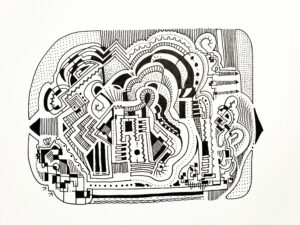
Sometimes it doesn’t matter what you’ll post and not having something to post doesn’t mean there’s urgency in the matter. Social media tends to persuade otherwise. For the first many months of last year, I forced myself to post even if I wasn’t “feeling it.” Those days were not my best in terms of content quality. Nowadays, however, if I have nothing to post, I don’t force anything. I patiently wait to “feel” it. And sometimes it takes a few days, sometimes a few weeks.
In my humble opinion, this kind of honesty is encouraging to viewers because it’s proof you’re human! Everyone likes to feel alright and comfortable (maybe even “normal”) with being human.
I tend to approach life as a workaholic so I tend to overwork myself (something I’m always learning how to balance). During my most active days on IG where I’d post nearly every day with something fresh and exciting, many people would ask how I did it. Well, I didn’t do it healthily! That’s for sure. I overworked myself to maintain the expectation IG presents to all creators, in that, we must post and be “seen” every day to maintain our standing with “The Algorithm.”
From what I’ve seen, if the quality speaks for itself, taking breaks does not affect your engagement numbers – that being said, it is highly recommended to work hard for a few months to ensure your IG account is known to be more consistent than not consistent. Though this would be a question to ask a professional social media marketer.
Here are a few things to try to ensure the fear of taking a break doesn’t create an imbalance in your life. A “break” for me at least might be a day to a few days or more. So, look for these things when observing your mental health:
- If you feel anxiety from the need to create new content, that’s probably a good sign you need a break.
- If the content you create doesn’t seem interesting or genuine to you, it probably isn’t. You should take a break.
- If you aren’t creating for the right reason, or your intent for the posts is unclear even to yourself, it might be time to take a break. Clear your head.
- If you find yourself thinking more about what to post than you do thinking about what to create (for non-social media purposes especially), consider a break.
- If you start hating the fact you have to post, this is kind of a no brainer. Take a break.
Conclusion
Nothing in life is perfect, because life isn’t perfect. Whatever I tend to fear is often a clue pointing me in a direction for self-growth and understanding. Despite the stereotypical expectation, facing these fears hasn’t brought me more confidence, but instead has given me the tools to take things more lightly and to place less meaning into things. One post is just a single post and if posting regularly, it’s just one post of many to come. If one post fails, so be it. Maybe my next post will be more successful tomorrow.
This is not to say it is easy to be public with your work or that after a year all my problems are gone! I still wrestle with these fears, just the same, with every post and every “risk” of public humiliation. Because for perfectionists or those who are self-conscious, it is the humiliation of a “bad” post that fuels the source of these fears and gives them a life of their own. Maybe with practice, one can shift the language here and replace “good and bad posts” with mere posts that Instagram deemed worthy of sharing with my audience.
Some days I had a post I was so confident would change my career path! Yet, they’d fall flat. Other days I would have a post I thought little of, yet would gain more attention than most. Whether Instagram is filtering out my more contemporary material or not might be another topic of research, but in any situation, there has always been someone who genuinely appreciates my content. Someone who found some value and felt inclined to comment or message me. And if you think about it, does 200 or 500 likes change the value of a post? It is so hard to tell what will be popular and popularity is truly SO hard to measure in the art and music world, especially with the need for marketing. Even if something only receives 20 likes, wasn’t it worth the challenge of putting yourself out there? To practice observing how we react to being more public? To risk influencing someone, anyone, with your work? Isn’t it always worth being honest with yourself and those around you, potentially causing a ripple effect that could positively persuade an immeasurable number of people to be more themselves, too?
Well, that’s always a hope. And the only thing we can be certain of is that never trying will offer no results and will prevent any possibilities. All we can do is try, and keep trying, with an acceptance that we aren’t in control of what will come of each post. And maybe it’s alright not to know. But it’s never okay to stay silent and never give yourself a chance.
If you do take the challenge of posting more regularly, it will, however, encourage the social media algorithms at play to take your profile more seriously and invest more screen time for your posts. Consistency is one of the biggest factors in improving numbers in the game of social media. That and effective marketing. In my opinion:
Quality is most important.
Marketing is second.
Consistency is third.
Effective marketing = more popularity.
A bigger marketing budget = even more popularity.
In regards to everything in this blog post, it still takes me constant personal reminders to keep the whole picture in mind. All these fears, these different approaches, and the perspectives I described are still on my mind every time I post! So I’m still in the process of balancing social media.
For now, I find it useful and quite effective to review and reflect on all of these things. And who knows, maybe my thoughts and process will change over the next year. Maybe you’ll find or have already found a different approach. And there’s only one way to find out!
Just keep on sharing. Keep on listening. And always keep on learning.
If you appreciated this blog post, consider thanking me through coffee via Ko-Fi.com.
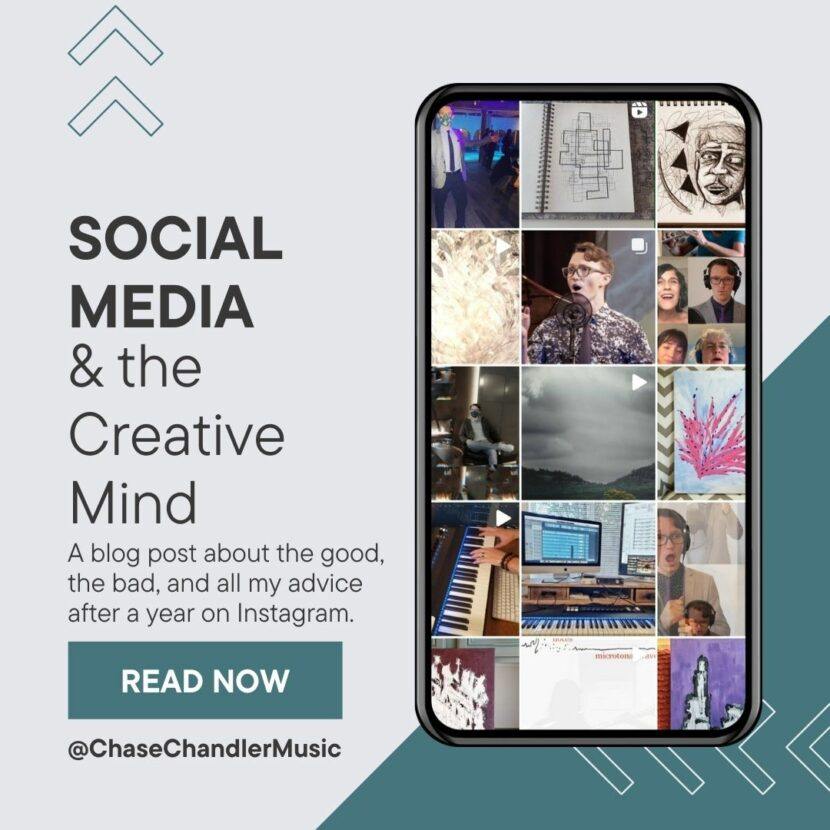
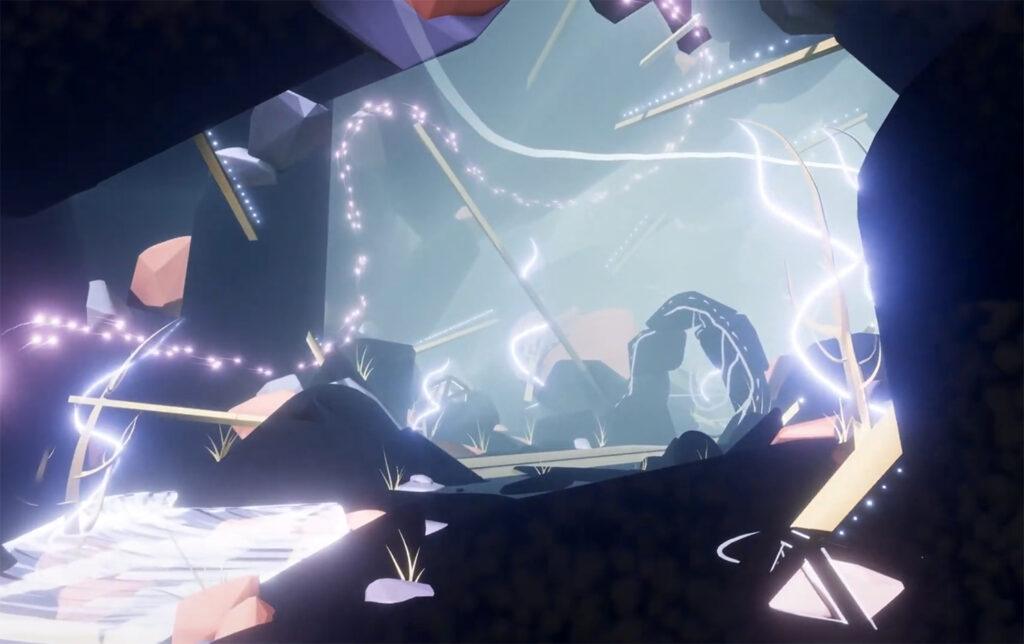
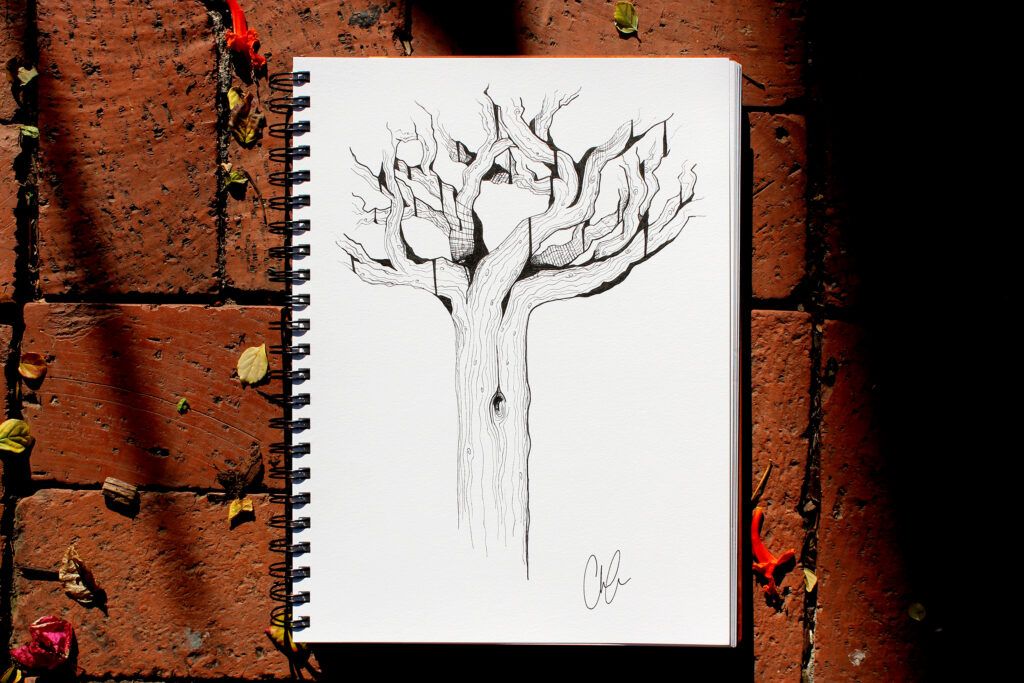

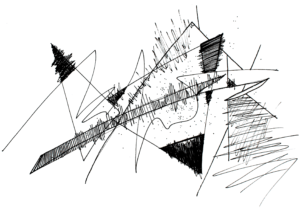
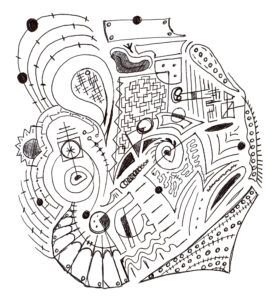
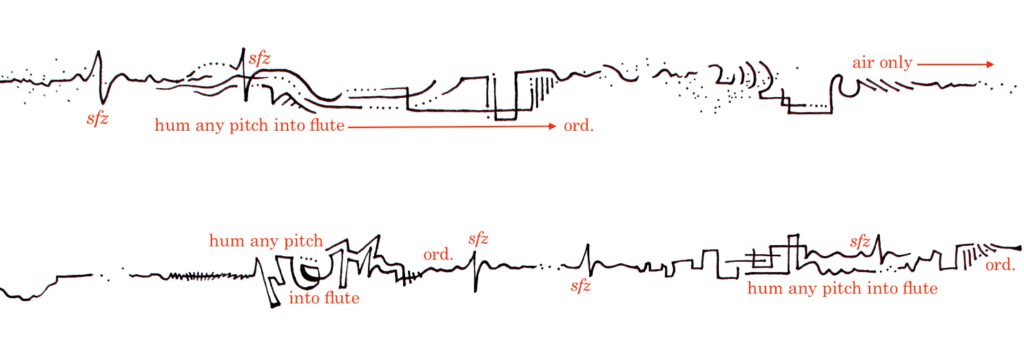

Good article.
Cheers!
I really appreciate your candid reflection on the challenges and fears that come with consistently sharing creative work on social media. Your honesty about the mental hurdles you’ve faced, despite the growth and positive connections you’ve experienced, is both relatable and encouraging.
The fear of judgment, losing creativity, achieving success, and even taking breaks are all valid concerns that many creatives grapple with. Your willingness to address these fears head-on and share your own journey of navigating them is incredibly valuable.
I especially resonated with your comparison to performance and the reminder that audiences often mirror the emotions of the performer. It’s a powerful analogy that underscores the importance of authenticity and vulnerability in creative expression.
Your advice to “post like you’re sharing with friends” is simple yet profound. It’s a reminder to approach social media with sincerity and genuine enthusiasm, rather than focusing on external validation or perfectionism.
Thank you for sharing your insights and experiences. Your transparency is sure to resonate with many creatives who may be struggling with similar fears, helping them feel less alone in their journey.
Thank you for your kind words and I truly hope we can all team together and not feel so lonely when marketing our work online. I appreciate you taking the time to reply and support. Let me know if I can help with anything else moving forward.